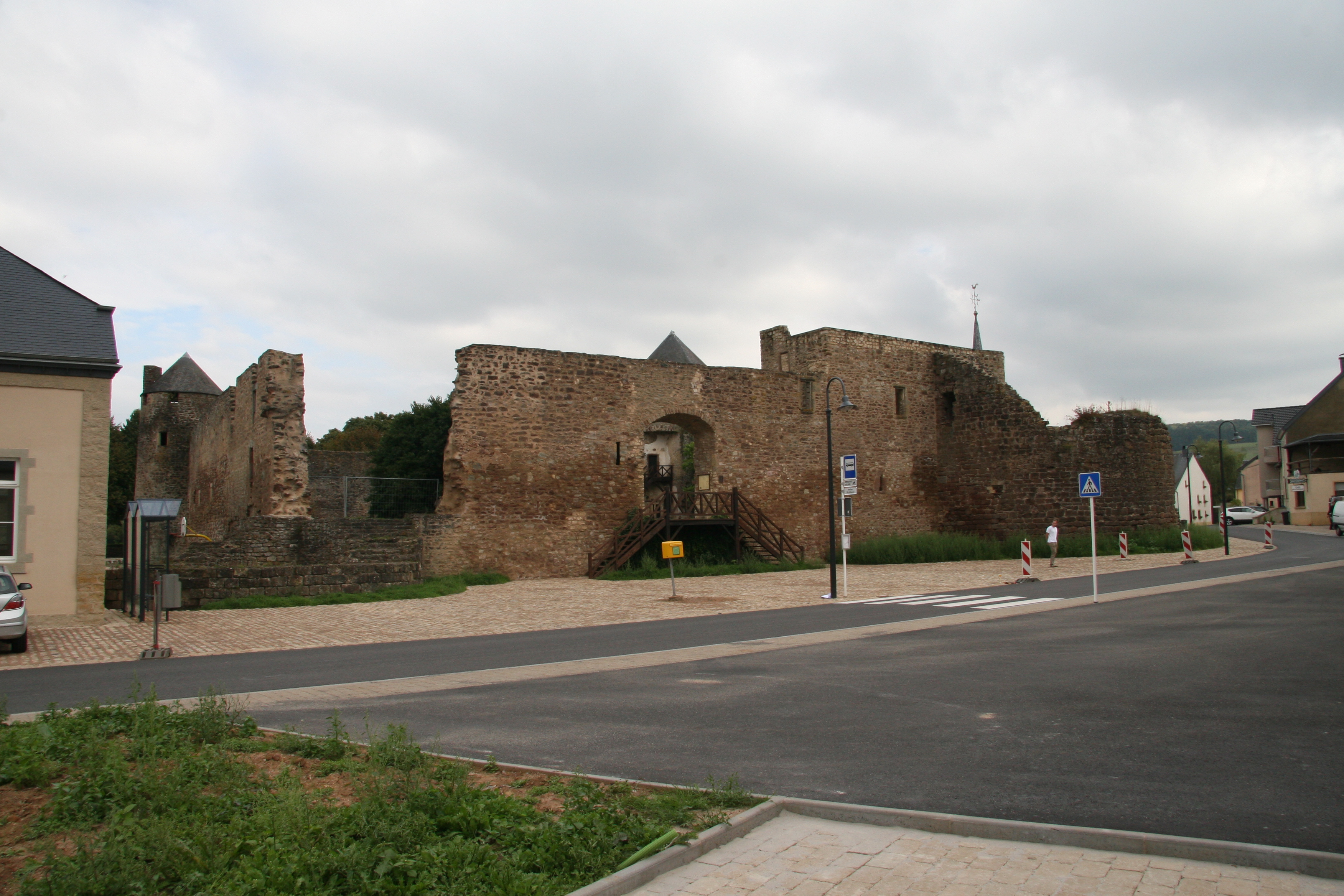|
Pettingen
Pettingen () is a village in the commune of Mersch, in central Luxembourg. In 2005, the village had a population of 198. Pettingen Castle in the centre of the village is one of the best preserved fortified castles in the country. ''Administration communale de Mersch''. Retrieved 25 March 2011. See also *List of villages in Luxembourg
This is a list of populated places in the Grand-Duchy of Luxembourg. It is based on the official database of the Nationa ...
[...More Info...] [...Related Items...] OR: [Wikipedia] [Google] [Baidu] |
Pettingen Castle
Pettingen Castle (french: Château de Pettange) is located in the village of Pettingen some 4 km north of Mersch in central Luxembourg. It is one of the best preserved fortified castles in the country. History In the 10th century the fortress was known as Pittigero Mazini but received the name of Pettingen in the 13th century. Towards the end of the Middle Ages, the Lords of Pettingen were important members of Luxembourg society. They were present at Ermesinde's wedding, at the coronation of Henri IV and at the signing of John the Blind's marriage contract."La seigneurie de Pettingen" ''Association des châteaux luxembourgeois''. Retrieved 25 March 2011. At the beginning of the 14th century Arnold of Pettingen married Marguerite of Rousy, the great granddaughter of Ermisinde. He had a son, ... [...More Info...] [...Related Items...] OR: [Wikipedia] [Google] [Baidu] |
Pettingen Luxembourg 20090918 04
Pettingen () is a village in the commune of Mersch, in central Luxembourg. In 2005, the village had a population of 198. Pettingen Castle Pettingen Castle (french: Château de Pettange) is located in the village of Pettingen some 4 km north of Mersch in central Luxembourg. It is one of the best preserved fortified castles in the country. History In the 10th century the fortres ... in the centre of the village is one of the best preserved fortified castles in the country. ''Administration communale de Mersch''. Retrieved 25 March 2011. See also *[...More Info...] [...Related Items...] OR: [Wikipedia] [Google] [Baidu] |
Mersch
Mersch ( ) is a commune and town in central Luxembourg, capital of the canton of Mersch. It is situated at the confluence of the rivers Alzette, Mamer and Eisch. , the town of Mersch, which lies in the centre of the commune, has a population of 3,345. Other towns within the commune include Beringen, Berschbach, Moesdorf, Pettingen, Reckange, Rollingen, and Schoenfels. Mersch is the home of the National Literature Centre, Luxembourg's national literary archive. The town is the site of one of the six regional headquarters of the Grand Ducal Police. Mersch Castle Mersch Castle (french: Château de Mersch) in central Luxembourg is one of the castles belonging to the Valley of the Seven Castles. Located in the centre of Mersch, its history goes back to the 13th century. Today the castle houses the administ ... is one of the castles belonging to the Valley of the Seven Castles. Located in the centre of the town, its history goes back to the 13th century. Today the castle ... [...More Info...] [...Related Items...] OR: [Wikipedia] [Google] [Baidu] |
List Of Villages In Luxembourg
This is a list of populated places in the Grand-Duchy of Luxembourg. It is based on the official database of the National Administration of Topography (Administration du cadastre et de la topographie - ACT). Furthermore it provides the Communes and Cantons every settlement is located in. The Luxembourgish names are based on the names recommended by the National Council for the Luxembourgish Language (Conseil permanent pour la langue luxembourgeoise - CPLL). Settlement types The settlement type describes the entity as which a settlement is administered. The twelve towns of Luxembourg have special legal status and are appointed by law. In general, these are larger settlements of a few thousand people and of regional importance. Villages are medium-sized settlements of usually a few hundred people. Every settlement classified as "official locality" (localité officielle) in the National Postal Register but not being appointed as town by law is classified as village in this li ... [...More Info...] [...Related Items...] OR: [Wikipedia] [Google] [Baidu] |
Communes Of Luxembourg
Luxembourg's 102 communes ( lb, Gemengen ; French: ''communes''; german: Gemeinden) conform to LAU Level 2Statec (2003), p. 9&10 and are the country's lowest administrative divisions. Communes rank below cantons in Luxembourg's hierarchy of administrative subdivisions. Communes are often re-arranged, being merged or divided as demanded by demographic change over time. Unlike the cantons, which have remained unchanged since their creation, the identity of the communes has not become ingrained within the geographical sensations of the average Luxembourger. The cantons are responsible for the ceremonial, administrative, and statistical aspects of government, while the communes provide local government services. The municipal system was adopted when Luxembourg was annexed into the French département of Forêts in 1795. Despite ownership passing to the Netherlands, this system was maintained until it was introduced upon independence in 1843. The province of Luxembourg, which now ... [...More Info...] [...Related Items...] OR: [Wikipedia] [Google] [Baidu] |
Luxembourg
Luxembourg ( ; lb, Lëtzebuerg ; french: link=no, Luxembourg; german: link=no, Luxemburg), officially the Grand Duchy of Luxembourg, ; french: link=no, Grand-Duché de Luxembourg ; german: link=no, Großherzogtum Luxemburg is a small landlocked country in Western Europe. It borders Belgium to the west and north, Germany to the east, and France to the south. Its capital and most populous city, Luxembourg, is one of the four institutional seats of the European Union (together with Brussels, Frankfurt, and Strasbourg) and the seat of several EU institutions, notably the Court of Justice of the European Union, the highest judicial authority. Luxembourg's culture, people, and languages are highly intertwined with its French culture, French and German culture, German neighbors; while Luxembourgish is legally the only national language of the Luxembourgers, Luxembourgish people, French language, French and German language, German are also used in administrative and judicial ma ... [...More Info...] [...Related Items...] OR: [Wikipedia] [Google] [Baidu] |


